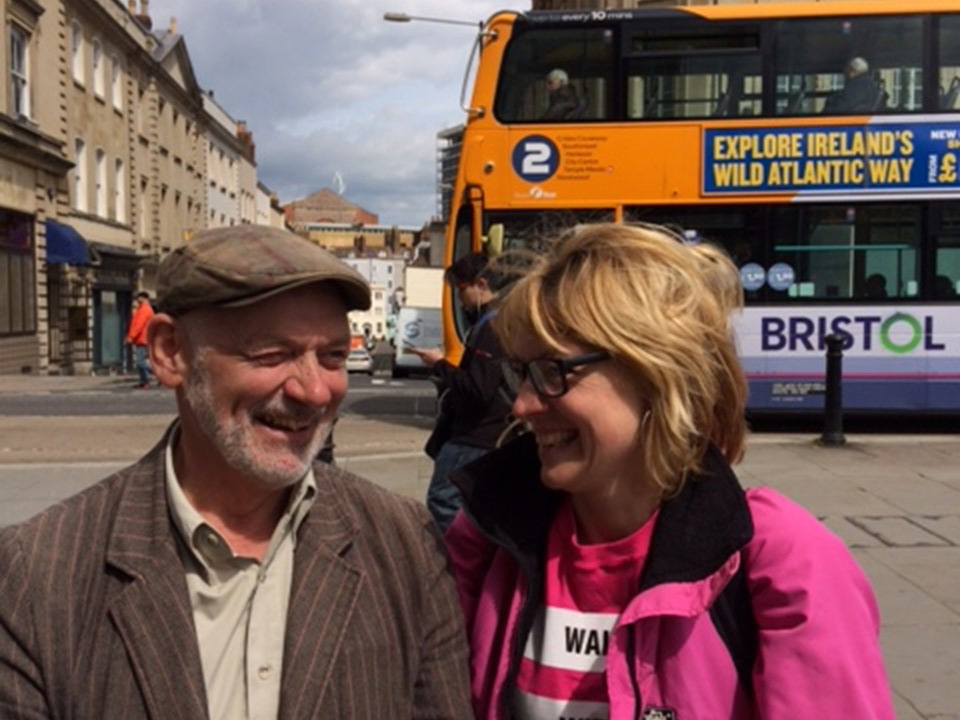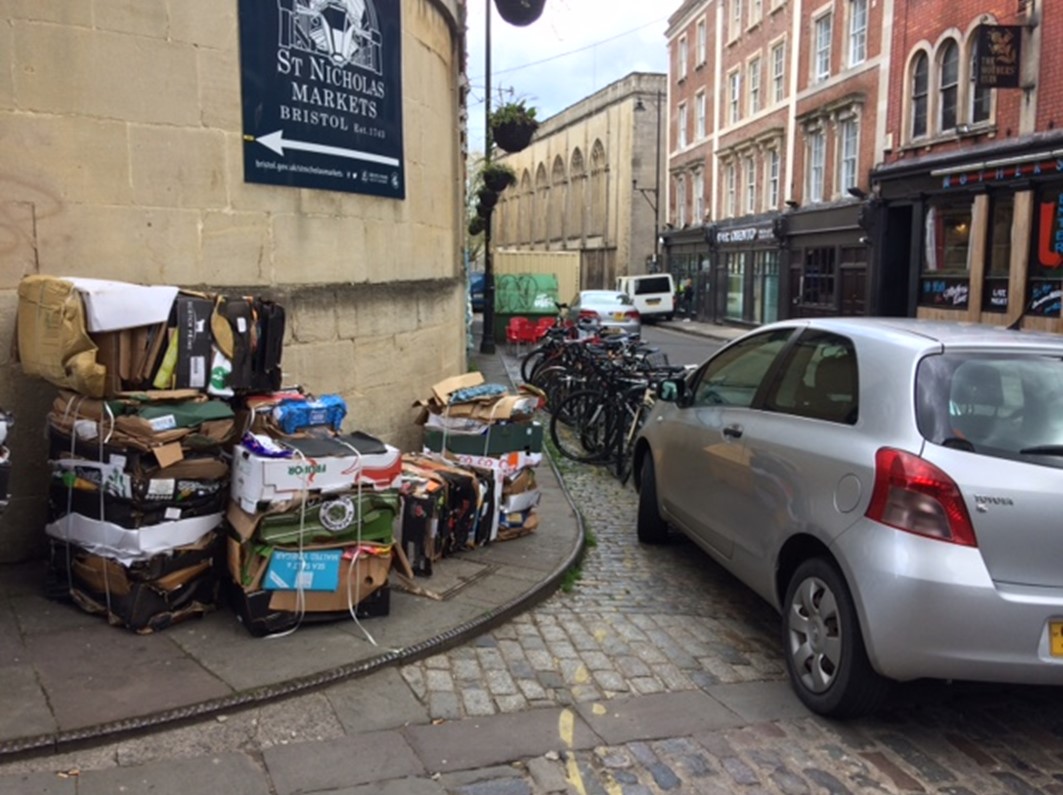MAKING BRISTOL WALKING FRIENDLY
Bristol is a busy urban environment with people busy getting where they need to go. There are thousands of journeys by foot, car, bus, bike and train made each day.
What is important is that people can get to school, work, university or to the shops when they need to.
We want everyone to make as many of these journeys by foot or by incorporating walking into their day. We’ve got our work cut out.
WHAT'S THE STORY?
Bristol Living Streets Group is one of a number of organisations in Bristol campaigning to improve the city for urban walking.
Each group pursues its own aims whilst working with the others through Bristol Walking Alliance, a citywide body set up for the purpose.
The urban walking experience in Bristol is dominated by the needs of motor vehicles, which urban planning has prioritised for many years.
We’re trying to reverse this effect to make it easier for people to commute and go about their everyday business more easily on foot or by wheelchair.

We are planning to use this evidence to influence political decisions and prioritise walking. We’re also looking at how issues are reported by the public using Fix My Streets and how effectively the local authority uses the information so gathered.
Charlie Beaton, Bristol Living Streets Group

WHAT WE WANT TO ACHIEVE
In order to highlight and get priority for the needs of walkers whether they are young or old, use a stick or a wheelchair, push a buggy or a walking frame, we’re gathering information and looking at communication methods.
To do this we have held a number of events and got local people to look at how walkable their communities are. We have chosen these areas based on the key routes to getting around the city.
By writing up our findings into walkability reports we are creating a suite of documents highlighting the dangerous state of Bristol’s walking environment.
SOME OF OUR KEY FINDINGS:
- Multiple side roads with no priority for pedestrians
- The potential hazard of cyclists on busy shared-use routes – even though many of us cycle in the group we feel the current infrastructure does not provide adequate space for both bikes and those walking
- The confusion caused by inconsistency in light-controlled crossings
- The shortage of information about how many people walk to strengthen the case for investment and improvements in the walking environment.
- We know that our walkability approach is essential for real political decision making that responds to people's needs.
- We want to encourage more volunteers in Bristol to carry out walkability audits of their local streets.
- We can hold the local authority to account for their performance when it comes to looking after the needs of people to make everyday journeys on foot.
- We plan to use our evidence to influence policy decisions in the Council.
